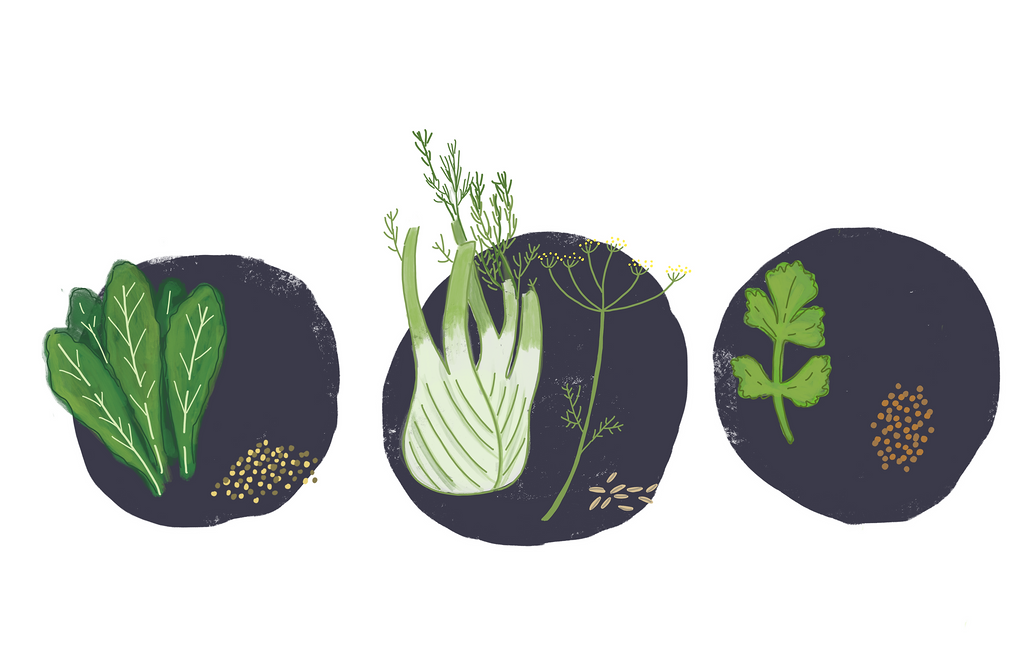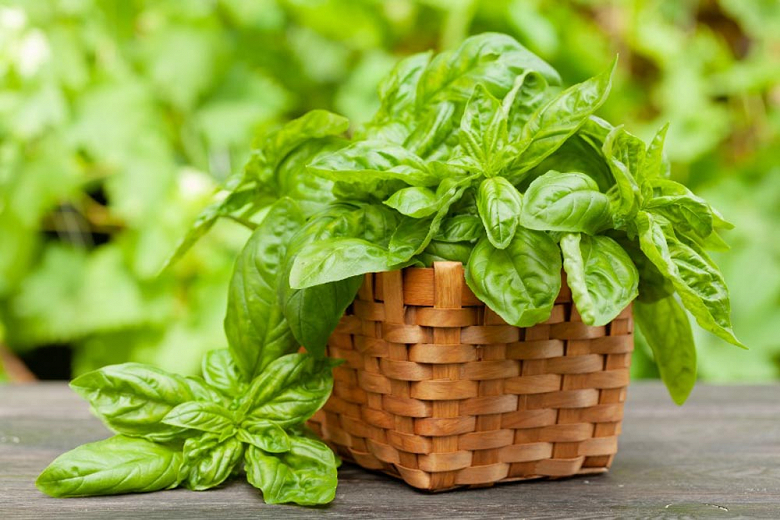The Herb Garden Do's And Don'ts: Which Herbs Should You Plant Together And Which Should You Avoid
The Herb Garden Do's and Don'ts: Which Herbs Should You Plant Together and Which Should You Avoid
Herb gardens are a great way to add flavor to your cooking, attract pollinators to your yard, and enjoy the beauty of nature. But if you want your herb garden to thrive, it's important to know which herbs should be planted together and which should be avoided.
In this blog post, we'll discuss the do's and don'ts of herb garden planting. We'll cover topics such as:
- Which herbs make good companions
- Which herbs should be avoided
- How to plant herbs together
- How to care for your herb garden
So whether you're a seasoned gardener or just starting out, read on for all the information you need to create a thriving herb garden.
Do's of Herb Garden Planting
- Plant herbs that have similar needs. This means planting herbs that require the same amount of sunlight, water, and soil type. For example, you wouldn't want to plant a drought-tolerant herb like lavender next to a moisture-loving herb like basil.
- Plant herbs that complement each other's flavors. This will help you create delicious dishes with your homegrown herbs. For example, basil and tomatoes are a classic pairing, while rosemary and potatoes are another great combination.
- Plant herbs that attract pollinators. This is a great way to help the environment and enjoy the beauty of nature. Some herbs that attract pollinators include lavender, mint, and chives.
- Plant herbs that have different heights. This will help create a more visually interesting herb garden. For example, you could plant tall herbs like rosemary and lavender in the back of your garden, and shorter herbs like basil and parsley in the front.
Don'ts of Herb Garden Planting
- Don't plant herbs that compete for resources. This means avoiding planting herbs that have the same water and sunlight requirements. For example, you wouldn't want to plant mint next to basil, as mint is a very aggressive grower and will quickly crowd out basil.
- Don't plant herbs that have incompatible scents. This means avoiding planting herbs that have strong scents that will clash with each other. For example, you wouldn't want to plant mint next to lavender, as the mint's scent will overpower the lavender's.
- Don't plant herbs that are susceptible to the same pests or diseases. This means avoiding planting herbs that are prone to the same problems. For example, you wouldn't want to plant basil and tomatoes next to each other, as they are both susceptible to whiteflies.
How to Plant Herbs Together
Once you've chosen the right herbs to plant together, it's time to plant them. Here are some tips:
- Choose a location that gets full sun for most of the day.
- Prepare the soil by tilling it and adding compost or manure.
- Space the herbs according to their mature size.
- Water the herbs well after planting.
How to Care for Your Herb Garden
Once your herb garden is planted, it's important to care for it properly. Here are some tips:
- Water the herbs regularly, especially during hot weather.
- Fertilize the herbs every few months with a balanced fertilizer.
- Deadhead the flowers to encourage new growth.
- Harvest the herbs regularly to keep them producing.
Conclusion
By following these do's and don'ts, you can create a thriving herb garden that will provide you with fresh herbs for years to come. So get started today and enjoy the benefits of growing your own herbs!
Are you a herb gardener? If so, you know that not all herbs get along. Some herbs compete for nutrients, water, or sunlight, while others release chemicals that can stunt the growth of their neighbors. If you want to get the most out of your herb garden, it's important to know which herbs to plant together and which to avoid.
Here are a few examples of herbs that don't grow well together:
- Fennel and cilantro: These two herbs are incredibly competitive, so it's best to plant them in separate containers or gardens.
- Rue, sage, and basil: These herbs can all damage each other by inhibiting each other's growth.
- Dill and lavender: Dill prefers acidic soil, while lavender prefers alkaline soil. If you plant these two herbs together, they'll both suffer.
- Mint: Mint is a very invasive herb, so it's best to plant it in its own container or garden. If you plant mint near other herbs, it will quickly crowd them out.
For more information about which herbs don't grow well together, I recommend visiting Garden Wiki. This website has a comprehensive list of herbs that should be avoided, as well as tips for planting herbs that will thrive together.
FAQ of herbs that don t grow well together
Q: What are some herbs that don't grow well together?
A: There are a few herbs that don't grow well together because they have competing or conflicting requirements. Some examples include:
- Fennel and cilantro: These herbs are incredibly competitive, so don't grow them together. They will both try to take over the same space, and neither will thrive.
- Rue, sage, and basil: These herbs can all damage each other by inhibiting their growth. Rue and sage produce chemicals that can stunt the growth of basil, and basil can attract pests that can damage rue and sage.
- Dill and lavender: Dill prefers acidic soil, while lavender prefers alkaline soil. If you plant them together, the dill will eventually become too acidic for the lavender to survive.
Q: What are the signs that two herbs don't grow well together?
A: There are a few signs that two herbs don't grow well together. These include:
- Poor growth: If the herbs are not growing as well as they should, it could be a sign that they are competing with each other for resources.
- Disease: If the herbs are starting to develop diseases, it could be a sign that they are stressed due to competition.
- Pests: If the herbs are attracting pests, it could be a sign that they are not compatible.
Q: How can I prevent herbs from competing with each other?
A: There are a few things you can do to prevent herbs from competing with each other. These include:
- Plant them in different parts of the garden: This will give them each enough space to grow without competing for resources.
- Plant them in different pots: If you don't have enough space in your garden, you can plant herbs in different pots. This will also help to prevent the spread of diseases and pests.
- Choose compatible herbs: When you are choosing herbs to plant together, make sure to choose those that have similar requirements. This will help to ensure that they will not compete with each other.
Q: What are some herbs that grow well together?
A: There are many herbs that grow well together. Some popular combinations include:
- Basil and tomatoes: These herbs complement each other's flavors and can help to deter pests.
- Chives and roses: These herbs help to repel pests and diseases.
- Oregano and thyme: These herbs have similar requirements and can be planted together in a pot or in the garden.
Q: How can I make my herbs grow faster?
A: There are a few things you can do to make your herbs grow faster. These include:
- Plant them in the right location: Herbs need full sun to grow well. If you plant them in a shady spot, they will not grow as quickly.
- Water them regularly: Herbs need moist soil to grow well. Water them deeply and regularly, especially during hot weather.
- Fertilize them regularly: Herbs benefit from regular fertilization. Use a balanced fertilizer, such as a 10-10-10 fertilizer, and follow the package directions.
Image of herbs that don t grow well together
- Fennel and cilantro: These herbs are incredibly competitive, so they should not be planted together. Fennel has a strong, licorice-like flavor that can overpower cilantro, and cilantro can inhibit the growth of fennel.

- Rue, sage, and basil: These herbs can all damage each other by inhibiting their growth. Rue has a strong, bitter taste that can be harmful to basil and sage. Sage can also inhibit the growth of basil, and basil can stunt the growth of rue.

- Dill and lavender: Dill prefers acidic soil, while lavender prefers alkaline soil. If these herbs are planted together, they will not thrive.

- Anise and dill: Anise and dill have similar flavors, so they should not be planted together. Planting them together can create a "flavor overload" in your garden.
- Sage and cucumber: Sage makes a bad bedfellow with cucumber and onion. The strong scent of sage can inhibit the growth of cucumbers, and the sulfur in onions can stunt the growth of sage.
Post a Comment for "The Herb Garden Do's And Don'ts: Which Herbs Should You Plant Together And Which Should You Avoid"